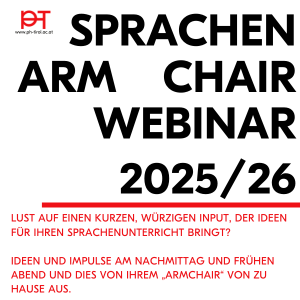
Lust auf einen kurzen, würzigen Input, der Ideen für Ihren Sprachenunterricht bringt?
Ideen und Impulse am Nachmittag und frühen Abend und dies von ihrem „Armchair“ von zu Hause aus.
Isabelle Barrière
IA, numérique et pédagogies actives :un trio gagnant pour un apprentissage des langues dynamique!
DI, 20.01.2026 - 16.00 - 18.15 Uhr
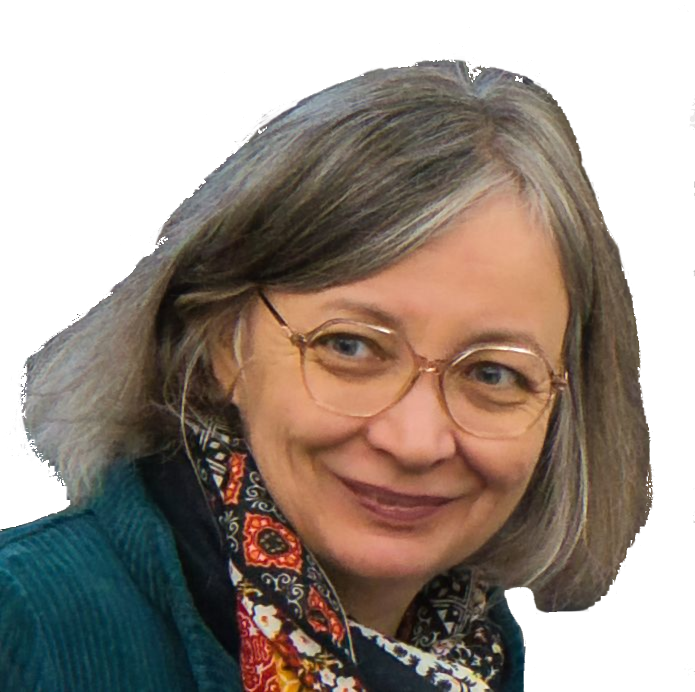 Formatrice FLE, formatrice de formateurs, ingénieure pédagogique et de formation depuis 30 ans, Isabelle Barrière enseigne le FLE dans plusieurs pays européens, forme enseignants et responsables pédagogiques et participe à de nombreux projets.
Formatrice FLE, formatrice de formateurs, ingénieure pédagogique et de formation depuis 30 ans, Isabelle Barrière enseigne le FLE dans plusieurs pays européens, forme enseignants et responsables pédagogiques et participe à de nombreux projets.
Spécialisée dans l’intégration des TIC et des pédagogies actives, la mise en place de projets pédagogiques et la formation à distance, elle intervient régulièrement lors de congrès de professeurs de français, de séminaires nationaux ou encore de formations organisées par différents organismes et institutions, comme les Instituts français ou l’OIF.
Et si l’IA et le numérique révolutionnaient votre enseignement des langues ?
Vous cherchez des moyens innovants pour dynamiser vos cours et impliquer vos apprenants? L'intelligence artificielle, les outils numériques et les pédagogies actives ouvrent des perspectives incroyables pour un apprentissage actif et engageant!
La compréhension écrite peut être facilement différenciée et ainsi répondre aux besoins des apprenants. La production orale est facilitée grâce à des outils qui encouragent les apprenants à s’exprimer plus naturellement et avec plus de confiance.
Les pédagogies actives, quant à elles, proposent des activités concrètes qui dynamisent l’apprentissage et renforcent la motivation des apprenants.
Allier les trois permet de créer un environnement d’apprentissage collaboratif interactif et stimulant, où chaque apprenant progresse à son rythme en développant ses compétences de manière autonome et investie.
Envie de faire évoluer vos pratiques? Rejoignez-nous!
MMag. Dr. phil. Elke Höfler
Schreiben mit und ohne KI: Tipps, Tools und Abläufe für den Fremdsprachenunterricht
DI, 17.02.2026 - 16:00 - 18:15 Uhr
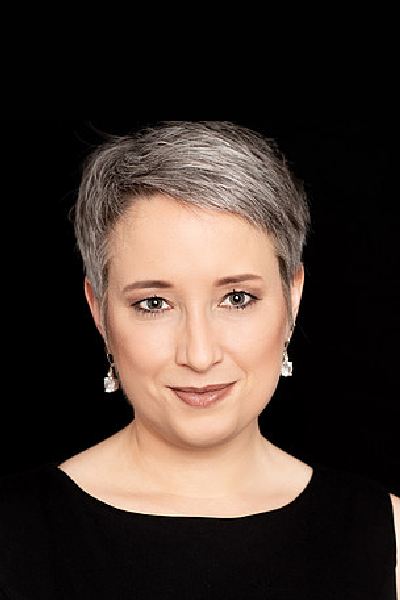 Elke Höfler ist Tenure-Track-Professorin am Institut für Romanistik an der Universität Graz (Schwerpunkt: Fachdidaktik & Mediendidaktik). Ihre Forschungsschwerpunkte liegen im Bereich Multimodalität, Artificial Intelligence, Futures Literacy, Fiktionsforschung, Mediendidaktik, mediengestützte Fachdidaktik, Sprachendidaktik, Multiliteracies, Social Media, MOOCs und Open Educational Resources.
Elke Höfler ist Tenure-Track-Professorin am Institut für Romanistik an der Universität Graz (Schwerpunkt: Fachdidaktik & Mediendidaktik). Ihre Forschungsschwerpunkte liegen im Bereich Multimodalität, Artificial Intelligence, Futures Literacy, Fiktionsforschung, Mediendidaktik, mediengestützte Fachdidaktik, Sprachendidaktik, Multiliteracies, Social Media, MOOCs und Open Educational Resources.
Künstliche Intelligenz verändert den Schreibprozess grundlegend – sowohl für Lernende als auch für Lehrende. In dieser praxisorientierten Fortbildung erkunden wir, wie KI-gestützte Tools den Schreibunterricht bereichern können. Wir analysieren konkrete Einsatzszenarien, diskutieren didaktische Strategien und erproben verschiedene KI-Werkzeuge für die Schreibpraxis. Dabei liegt der Fokus nicht nur auf der Effizienz, sondern auch auf kritischem Denken, kreativer Nutzung und der Reflexion über den Schreibprozess.
Dott. Marco Benini
Canto e imparo - La canzone nelle classi di italiano LS
DI, 24.02.2026 - 15.30 - 18.45 Uhr
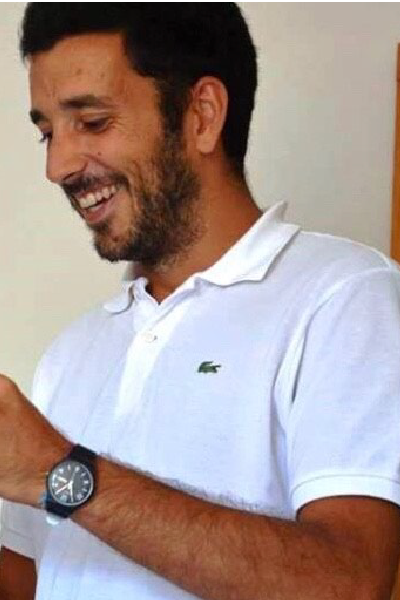 Marco Benini ist didaktischer Leiter der Scuola di Italiano per stranieri Mondavio. Lehrer für Italienisch L2, Philosophie und Geschichte am Liceo artistico Scuola del Libro in Urbino. Referent im Bereich innovativer Methoden der Fremdsprachendidaktik in FB-Veranstaltungen für Sekundarschullehrer:innen.
Marco Benini ist didaktischer Leiter der Scuola di Italiano per stranieri Mondavio. Lehrer für Italienisch L2, Philosophie und Geschichte am Liceo artistico Scuola del Libro in Urbino. Referent im Bereich innovativer Methoden der Fremdsprachendidaktik in FB-Veranstaltungen für Sekundarschullehrer:innen.
La canzone è un ottimo strumento per coinvolgere gli studenti, stimolare l’ascolto attivo e sviluppare le competenze comunicative. Questo corso si rivolge a insegnanti di italiano LS interessati a integrare la musica nella pratica didattica. Verranno presentati materiali e proposte operative per analizzare i testi delle canzoni e lavorare sulla comprensione, sulla produzione e sull’interazione. Il percorso prevede anche l’esplorazione di strumenti digitali, tecniche ludiche e strategie per valorizzare la canzone in classe, rendendo l’apprendimento più motivante.
Mag. Dr. Thomas Strasser
From Hype to Help: your updated AI toolkit for the EFL classroom
DO, 15.04.2026 - 17.00 - 19.15 Uhr
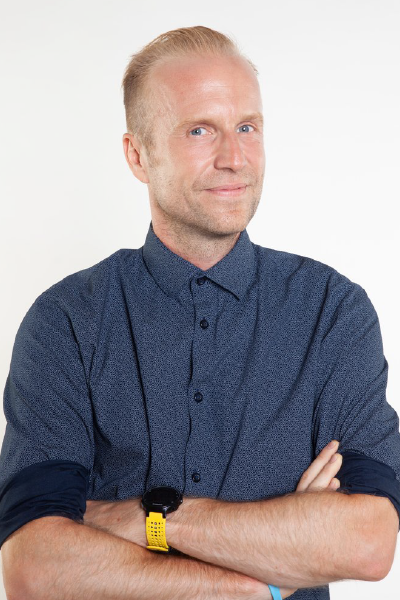 Thomas Strasser is Professor of Foreign Language Methodology and Technology-Enhanced Language Learning at the University College of Teacher Education in Vienna. He is an experienced language educator, teacher trainer, textbook author, and international keynote speaker, having presented in over 30 countries. His publications include method books such as Mind the App and Mind the App 2.0, English coursebooks for secondary schools, and more than 50 academic papers.
Thomas Strasser is Professor of Foreign Language Methodology and Technology-Enhanced Language Learning at the University College of Teacher Education in Vienna. He is an experienced language educator, teacher trainer, textbook author, and international keynote speaker, having presented in over 30 countries. His publications include method books such as Mind the App and Mind the App 2.0, English coursebooks for secondary schools, and more than 50 academic papers.
In this hands-on and engaging online session, Prof. Strasser will guide EFL teachers through the ever-evolving landscape of digital tools and AI applications for lesson preparation. With a focus on practical implementation, the webinar will help you move beyond the hype and discover how AI can truly support your day-to-day teaching practice.
What you’ll explore:
- Why and how AI and digital tools can enhance your teaching
- How to evaluate and select tools that suit your teaching context
- Ways to use AI tools to support student learning and performance
The session will introduce a variety of tools beyond ChatGPT – including writing assistants, worksheet generators, AI flashcards, image creators, and explainer video tools – all demonstrated through interactive tasks and inspiring examples.
Mag.a. Kathrin Eberharter, MA PhD & Mag.a ElisaGuggenbichler, BA
Pause, Play, Understand: Research Insights into Self-Paced Listening
DO, 23.04.2026 - 16.00 - 17.30 Uhr
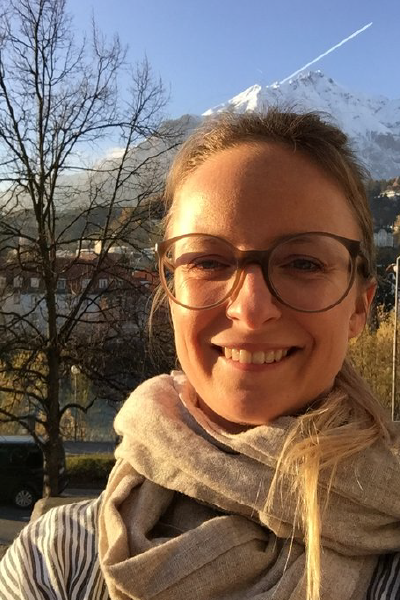 Kathrin Eberharter is currently a senior lecturer at the University of Innsbruck, where she guides pre-service teachers in the principles of best practice for language testing and assessment. She earned an Austrian teaching degree and completed her MA and PhD at Lancaster University, specializing in language testing. Her primary research interests centre on evaluating L2 writing and speaking, with a dedicated focus on task development, writing processes, rating scale design, and rater cognition and training.
Kathrin Eberharter is currently a senior lecturer at the University of Innsbruck, where she guides pre-service teachers in the principles of best practice for language testing and assessment. She earned an Austrian teaching degree and completed her MA and PhD at Lancaster University, specializing in language testing. Her primary research interests centre on evaluating L2 writing and speaking, with a dedicated focus on task development, writing processes, rating scale design, and rater cognition and training.
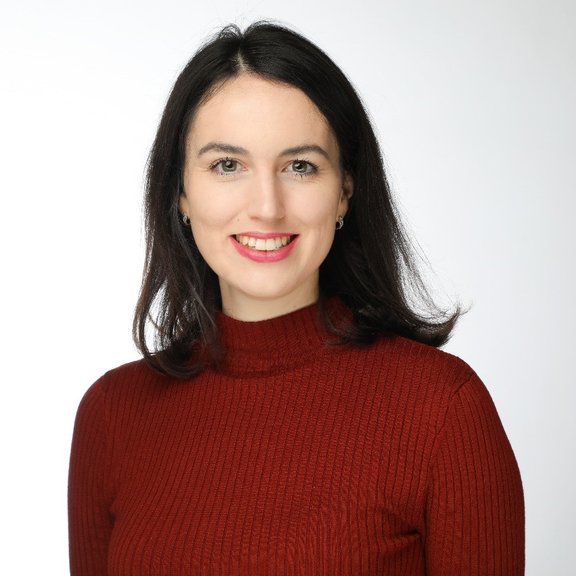 Elisa Guggenbichler is a PhD candidate at the University of Innsbruck, focussing on second language listening assessment. Elisa holds a teaching degree for English and French as foreign languages and a BA degree in Translation studies, both from the University of Innsbruck. Elisa has experience as a lecturer and researcher at the University of Innsbruck, where she has been involved in the training of future language teachers and contributed to a number of research projects on language assessment. In her PhD project, Elisa explores the effect of self-paced listening and how it may help increase test fairness for language learners with access needs.
Elisa Guggenbichler is a PhD candidate at the University of Innsbruck, focussing on second language listening assessment. Elisa holds a teaching degree for English and French as foreign languages and a BA degree in Translation studies, both from the University of Innsbruck. Elisa has experience as a lecturer and researcher at the University of Innsbruck, where she has been involved in the training of future language teachers and contributed to a number of research projects on language assessment. In her PhD project, Elisa explores the effect of self-paced listening and how it may help increase test fairness for language learners with access needs.
Digital listening tasks increasingly allow learners to pause and rewind the audio recording, and there are recommendations that such self-paced listening may help learners with learning difficulties. But (how) do different learners, specifically those with dyslexia, benefit from self-paced listening? May self-paced listening make listening assessments fairer?
In this talk, we will present and discuss two large studies we have conducted with Austrian lower- and upper-secondary students on the effect of self-paced listening in listening tests.
